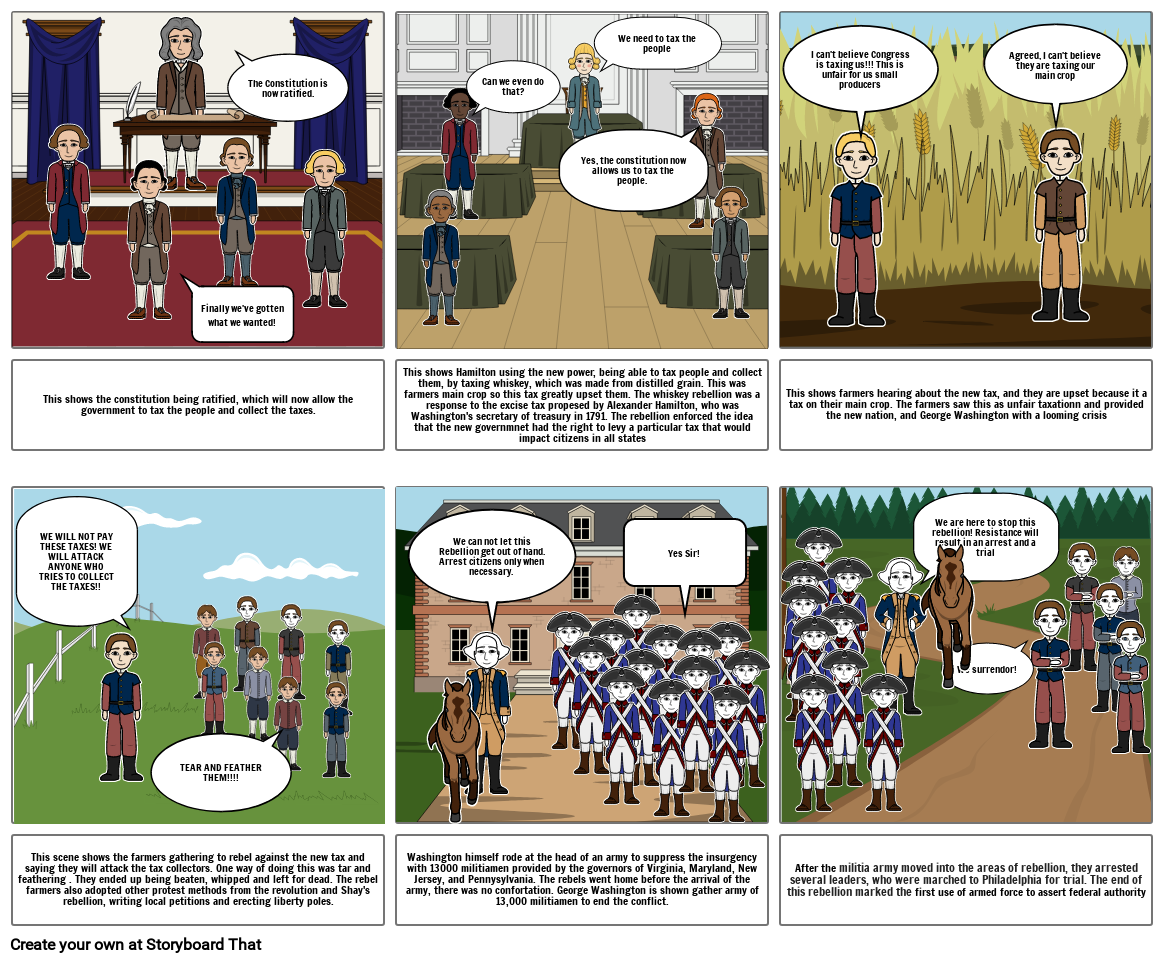Whiskey Rebellion

Storyboard Text
- Finally we've gotten what we wanted!
- The Constitution is now ratified.
- Can we even do that?
- Yes, the constitution now allows us to tax the people.
- We need to tax the people
- I can't believe Congress is taxing us!!! This is unfair for us small producers
- Agreed, I can't believe they are taxing our main crop
- This shows the constitution being ratified, which will now allow the government to tax the people and collect the taxes.
- WE WILL NOT PAY THESE TAXES! WE WILL ATTACK ANYONE WHO TRIES TO COLLECT THE TAXES!!
- This shows Hamilton using the new power, being able to tax people and collect them, by taxing whiskey, which was made from distilled grain. This was farmers main crop so this tax greatly upset them. The whiskey rebellion was a response to the excise tax propesed by Alexander Hamilton, who was Washington's secretary of treasury in 1791. The rebellion enforced the idea that the new governmnet had the right to levy a particular tax that would impact citizens in all states
- We can not let this Rebellion get out of hand. Arrest citizens only when necessary.
- Yes Sir!
- This shows farmers hearing about the new tax, and they are upset because it a tax on their main crop. The farmers saw this as unfair taxationn and provided the new nation, and George Washington with a looming crisis
- We are here to stop this rebellion! Resistance will result in an arrest and a trial
- We surrendor!
- This scene shows the farmers gathering to rebel against the new tax and saying they will attack the tax collectors. One way of doing this was tar and feathering . They ended up being beaten, whipped and left for dead. The rebel farmers also adopted other protest methods from the revolution and Shay's rebellion, writing local petitions and erecting liberty poles.
- TEAR AND FEATHER THEM!!!!
- Washington himself rode at the head of an army to suppress the insurgency with 13000 militiamen provided by the governors of Virginia, Maryland, New Jersey, and Pennysylvania. The rebels went home before the arrival of the army, there was no confortation. George Washington is shown gather army of 13,000 militiamen to end the conflict.
- After the militia army moved into the areas of rebellion, they arrested several leaders, who were marched to Philadelphia for trial. The end of this rebellion marked the first use of armed force to assert federal authority
Over 30 Million Storyboards Created
No Downloads, No Credit Card, and No Login Needed to Try!
